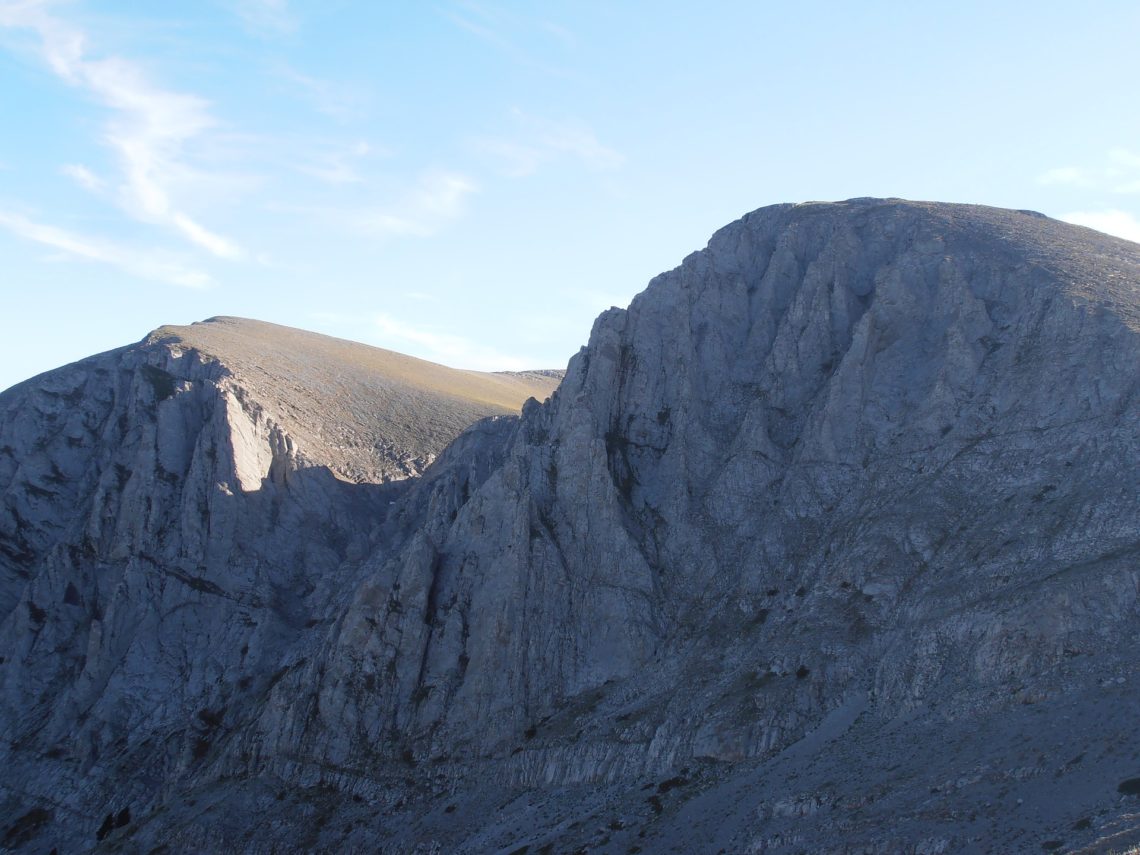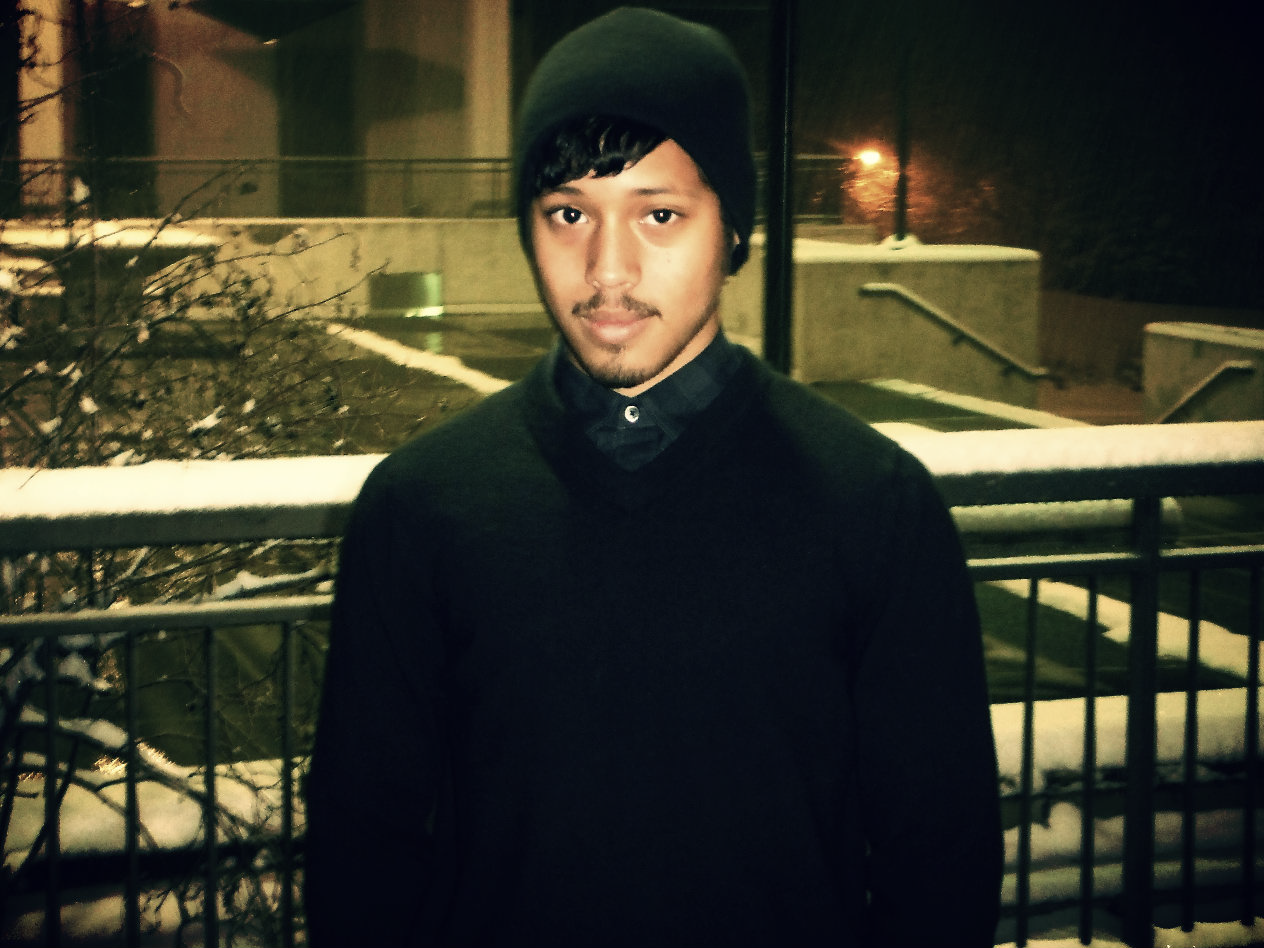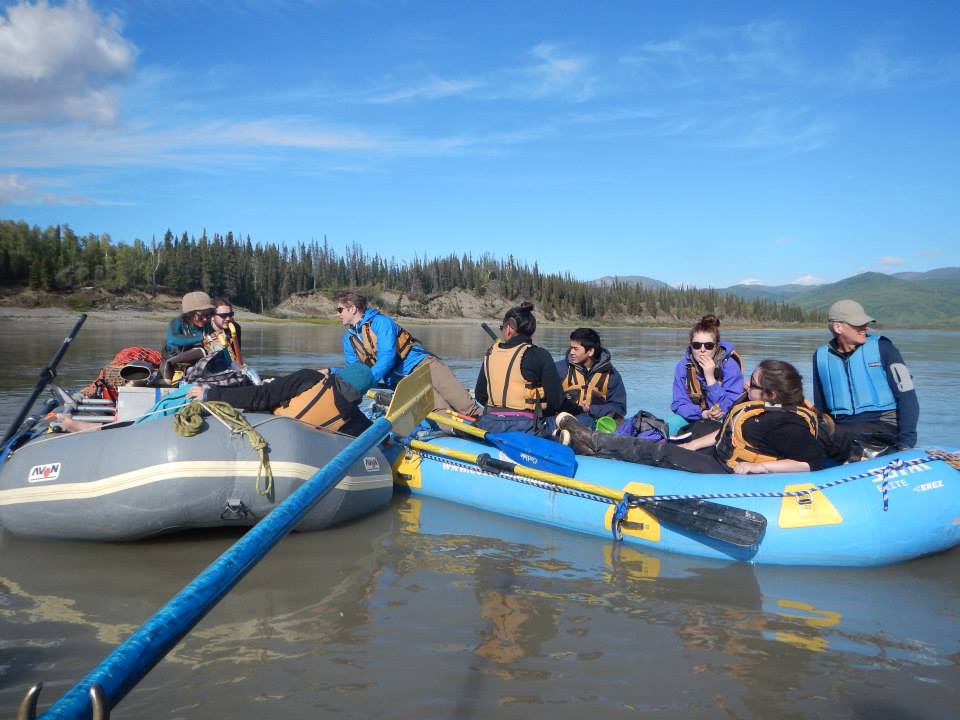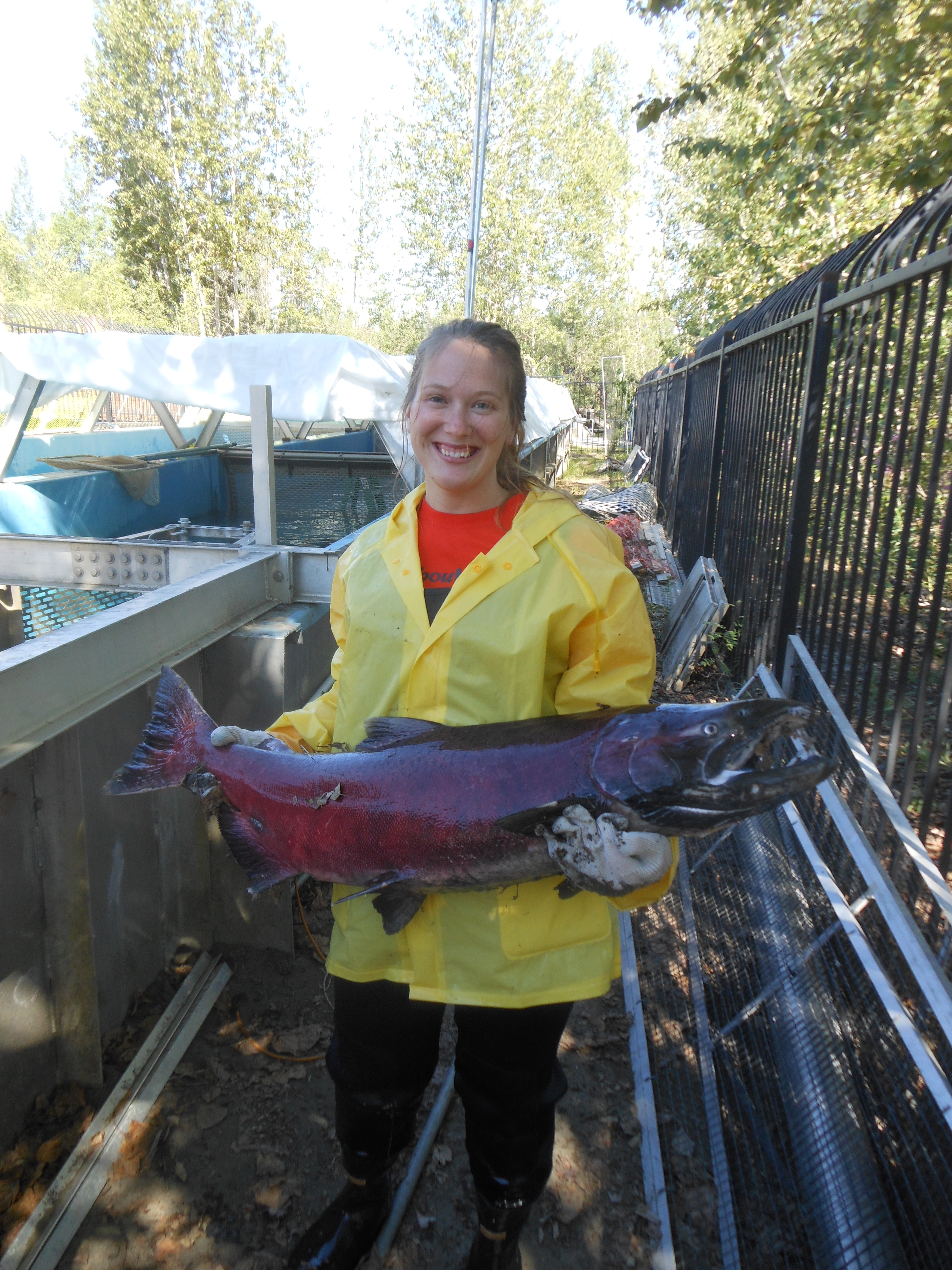Thinking Back, 2002 – Spring 2022
By Laura Ditto
Growing up around people who look at mountains like something they might attain for an afternoon snack leaves one with an odd sort of connection to nature.
I’ve been raised with the stories of these people; who they are, their incredible feats, but also too often who they were. Early death, as it turns out, comes a little too easy for the adventurous spirits. That’s where the close, safe-feeling connection with nature becomes an oxymoron.
Being who I am—somewhat cautious all the time but also clumsy—I tend to tread carefully when I’m walking in the woods. It leads me to think that maybe I have an upper hand for when my time comes to face a sheer cliff or particularly rapid river. I think this, but then I hear another story about someone with years of experience, who knew what they were doing, yet still didn’t show up for dinner like they said they would. Those who never got to send the message that they made it out okay, because they were taken out by a bad climb, avalanche, slippery slope, animal encounter, or tree fall—the unstoppable forces that don’t care how good you are at surviving. Mary Fogarty. Steven Brown. Cody Dial. Pia Denkewalter. Macklin Stevenson. May they rest easy.
I hear their stories and think somberly to myself: Well, sh*t. I could die too.
Yet, I was raised with breathtaking views and afternoons spent with my sore feet dipped in cool streams, so I learned to outweigh the risks with excitement and wonder.
My dad, a mountaineer not by profession but by sheer will, raised my sister and I to be curious. To stop looking at the little shiny boxes in our laps and explore the grand world outside. He raised us to know that no tree is too tall, and no adventure is too big. He is also the man my mother had to rescue from the mountains because he was half starved. The same man who ate an entire pizza on his own and then returned to the mountains to finish his trip. The one that I inherited my stubbornness and curiosity from. My family believes in seeking out answers from experience.
If you want an image of my father, the best one is to imagine the actor Viggo Mortensen in his star role of Aragorn from The Lord of the Rings. He has the same chin, eyes, and dark shoulder-length hair. After my father has spent a week or more in the backcountry, he even carries the rugged stubble and air of ease that a fantasy ranger would have.
However, much like the Hobbits from said franchise, my escapades with my father were not without faults. I often recall my trips into the backcountry being peaceful and rejuvenating, but occasionally I am reminded of the times I forget until it’s time for a good story. I can’t help but imagine that those are moments that nearly marked my end. I’ve seen the weather change and trips turn sour time and time again, yet I find myself chasing after those days spent on sharp ridge lines.
I still yearn for such adventures regardless of the time I picked highly toxic flowers that could have paralyzed me, or when I was found with my body half dangling off an eight-foot-high cabin loft, or even the time I used my eleven-year-old child like body to hold up the walls of a tent while a storm wailed outside. Even after all those instances, however, there is still no place I’ve chased quite as many thrills than in Olympic National Park on Washington State’s coast.
To the Mountains I Go
Tundra rolls beneath my feet,
rivers matching every beat
of heartstring pound
as I go ‘round
this mountainside
that I abide.
These wild lands could strike me down—
a silent fate without a sound—
and I can’t say why I love them so,
but always, forever, to the mountains I go.
The Bailey Range, Summer 2017
As is the natural progression of a wild child’s life, I was built up towards bigger and bigger trips. My first backpack was the one I rode in while my parents carried me on trips, then I transitioned to carrying my water and raincoat in a little day bag, which eventually became all the gear I needed, forty pounds or more, heaved over my shoulders in a large fifty-five-liter backpack.
When I was fifteen years old, my dad seemingly thought my sister and I were old enough to go with him on a trip he had completed twenty years prior when he was in his twenties—his so called “prime.” The route is known to mountaineers of Olympic National Park as the Bailey Range Traverse. It is best called a “route” since the trails sometimes vanish, and all you have are a few sentences in a book or an old memory to guide you around rivers and cliffs. With days of strenuous travel, the traverse is stretched across several valleys, and is speckled with glaciers, rocky outcrops, and river crossings.
By 2017, my sister and I had been on trips in the park before with our grandparents and other family members, but this was our first trip where we were going beyond the beaten trails we all knew and loved.
We began our first day in the hot sun and ended it at a lake where I took a photo of my new hiking boots. What those boots went through, however, was further than I anticipated; a hundred miles or so of hiking, occasionally along routes that my father [wrongly] thought he remembered.
A few days into the trip came one of our longer planned hikes. We had to cross over Hayden Pass and drop down into the Elwha Valley. The day started out fine. There were not outward signs that something would go terribly wrong, but there was a little-known fact about the Hayden Pass trail that was only briefly described by one of the park rangers: it was a burn zone from a forest fire just one year prior. The trail leading down into the valley was drier than a desert, with over seventy crusty trees toppled along the trail. But worse yet for my feet which had already been battered by my new boots, is that the trail was downhill.
Down always seems like a good thing until you’re there doing it. What seems like the easier, less tiring movement, actually puts immense stress on your joints while gravity simultaneously rams your toes into the front of your boots with each and every step.
Foot down. Ow. Other foot down. Ow. Foot down again. OW. So on and on it goes.
The pain coupled with the heat was unbearable. I imagine it very similar to those Greek characters with absurd punishments like Sisyphus or Prometheus. Considering how hot it was, I’m not sure where I found the resources to cry of all things, but I would be lying if I said I completed that trip with a smile on my face. I have vivid memories of wiping away hot tears from my cheeks, hoping my dad wouldn’t hear my sniffling from where he led us down the trail. He had always loved backpacking, and as he raised me to do the same, I felt guilty that I wasn’t strong enough to make it through some pain. He taught me to admire the world just as he did, and I wanted to be there for him and to prove that I belonged within my outdoorsy family, but I couldn’t help but wonder what I could do to be curled up in a cushy seat with a blanket over my lap.
Throughout that day along Hayden Pass, dangerous thoughts crossed my mind. More than once I was reminded that if I took a bad fall and broke a leg, I could get a [very expensive] helicopter ride out of the park. Luckily, my inherited common sense had the resounding answer to those thoughts: no. I couldn’t do that to my backpacking partners, and certainly not my father. It was not the last time I considered how to best escape the trail, but to this day I’ve yet to break a bone, and I especially haven’t broken one just to get out of doing something.
Days later, around the middle of the trip, at the first of two cruxes, we had to navigate up a route called the Snow Finger, known for the snow that lasts well into summer in its deep gullies. My father had expected it to take us just a couple hours to get to the top and make camp, so we would be well rested for a day of glacier travel the following day, but we soon encountered issues with his plan.
I was already tired, and my feet were plenty sore from the countless miles we had already completed. My father insisted this would be easy, but it was long since I learned to not trust the man when he was talking about the wilderness.
As we entered the daunting Snow Finger, we strapped into our crampons so we wouldn’t slip across snow and wet branches. The crunching sound of the metal spikes into gravel bars became a croaking tone of goblin-like music, but even then, they didn’t stop me from slipping and stabbing a hole through my pants with a sharp branch nearby. My father followed suit, slicing a hole in both his pants and leg with the spike on his own cramp-on. Like father like daughter, I suppose.
After the holes had been poked in our gear, we came to a choice. Rock, or ice? Ice meant possibly falling through a layer of packed snow into flowing water of unknown depths, and maybe getting stuck under the snowpack, making the option a hard pass from anyone who had any semblance of risk management. Rock, on the other hand, signified a gulley that shot up with ragged looking cliffs on either side. The gulley, with exceptionally sharp gravel at the bottom, narrowed as it rose to a short section that essentially became a vertical scramble to our goal. With the day waning on, we made the decision: rock it was.
My dad ascended first with only minimal equipment, having dropped his heavier items like rope and food at the bottom. Once at the top, he scrambled out of view, and my sister and I waited until he appeared again at the top of the incline, beckoning for me to follow.
I wondered why he did not have my more experienced sister go, but as it turns out, because I had been climbing regularly at the rock gym with him for the past seven months, he preferred to have me, his youngest, scamper up the rock face with a heavy object slung over my shoulder.
After some shouted conversation, I found that he wanted me to carry the rope and climbing gear up to the vertical section and pass it off to him. My father decided it was too dangerous to ascend with our packs on, and he didn’t want one of us to climb up on our own without being clipped in. With the decision made, I pulled on my climbing harness—an item that we debated even bringing on the trip at all—and hauled the sixty-five-foot-long rope up to the vertical section he deemed so dangerous. Here the fun began.
The section was just long enough that my short fifteen-year-old arms could not push the rope high enough for my father to grab, so I had to edge my way up the gulley, feet braced on the crumbly rocky outcrops by my sides. All this while holding three pounds of rope above my head. No helmet, no gloves: just a small person with an unattached harness, stomach flat against a rock surface, hoping to some higher force that a stiff wind wouldn’t blow her over backwards. With my father lying down on his stomach above me, I remember him lowering his ice axe and hooking it around the rope I held up to him like a tribute. Slowly but surely, it was lifted out of my hands.
Then my father told me to wait.
I can’t say how long I braced myself into that jagged rock surface, but at the time, it felt like an hour or more. There wasn’t a single sign of my father for the longest time, no matter how much I craned my neck in a desperate attempt to see or hear some sign of life. I was left squished into a gulley, with my sister waiting at the bottom, squinting at me to see what was going to happen next.
Ages passed before my father finally appeared again, got me tied into the rope, and helped ferry me to the top of the gulley before he fetched our backpacks and my sister. When I was unhooked from the rope at the top, I discovered what had taken my father so long. He had been deciding where he would anchor the rope for our belay. In a moment of disbelief, I found that I had been tied into the only object for miles that was affixed to the ground: a small prickly sapling of a tree with a trunk no wider than three inches across. Ah, yes, the object that would have saved my neck had I taken a fall. Truly humbling.
That night, as we had run out of daylight to move on after our gulley excursion, we slept just above the spindly tree on a tight ridge hardly wide enough for our tent.
As we lay in our sleeping bags, my dad jokingly threatened: “Don’t roll over.”
That excursion, along with the next couple of days, set us back nearly a full twenty-four hours. We were lucky my dad had built in a rest day, so we had some squish time to make it out of the park before our family started to worry about us. I was not personally lucky, however, since my feet were still screaming every time I put my boots on in the morning. In our mad dash to make up lost miles, we found ourselves camped on the side of a mountain in the most literal sense. Our tent was pitched on a boulder the size of a small garage that was part of a large rockslide on the slope of a mountain. If we looked up, the summit of Mt. Carrie poised above us. If we looked down, marmots yelped at us from their homes beneath the boulders. In a shocking turn, the boulder bed was shaped very ergonomically, and I’ve honestly never slept better in the backcountry since that night. We had the rain fly off, since the skies were perfectly clear, so the crisp air wafted by us. A satellite phone message from my grandmother let us know the ISS was passing overhead, and my sister, dad, and I watched with delight as the bright dot drifted across the sky over the glowing surface of Mt. Olympus.
A less fortunate turn was when we woke up the following morning and discovered that our water source from the night before had refrozen overnight and was now just a patch of snow. Without the time to wait for it to become a trickle, we melted a little with our stoves, but ultimately made the decision to carry on with what we had, hoping to find water later in the day.
From the side of Mt. Carrie, we scurried on towards the Catwalk—a sharp ridge of rocks that has a thin trail curling around the very top of the ridge, sometimes with sharp drop-offs that seem to vanish into the valley below. As we picked our way across, we encountered some of the first civilians we had seen in days. Returning to populated areas is always a bit of a culture shock when you’re coming out of the backcountry, as smells, smiles, and chatter are reintroduced.
With the Catwalk behind us and a goal to get past Swimming Bear Lake that day, we trekked on, our hopes of finding water dwindling. It was another hot and grueling day, with August sun bleaching the world of moisture, and coloring my skin pinker than it already was. We passed by dried stream beds where we knew there should have been water, but it was already gone with the devastating heat of the season. I was a fish-out-of-water level of parched by the time we ran out of water, desperate to find anything we could filter. Any patches of snow were a no go, since what snow was left was dirty, and we didn’t have time to pull out a camp stove and boil it down. Eventually, however, after a few too many complaints about how damn thirsty I was, my father pointed to my only option for water. A pond.
More accurately it could be called a puddle. The water was horribly stagnant, with greenery around its edges and frog eggs near the surface. In my memory, I watched a frog jump out of the pool of water as we approached it with our filter, but I couldn’t be certain of that. What I can be certain of, however, is that my dad filtered me some of that water. The water that remained a murky green even after it passed through the filter. The water that had been sitting in that forested hollow collecting frog scum for ages. The water that had been warmed by the late summer sun. The water that I drank.
I wish I could say it was the best water I ever had, as if I were so desperate for a drink that it was like a sweet gift from the gods, but I cannot lie. It was tepid and had the vaguest taste of soil. Balmy, at best. However, the frog tea pulled me through until the gentle blue waters of Swimming Bear Lake appeared. The sound of trickling water had never been so alluring.
Looking Forward, Summer 2022
Olympic National Park had not seen the last of us. Not. At. All. Last year the idea of doing a full traverse across the park finally bloomed into a route, permitting, and scheduling. Our family had been on enough trips through the park to know how to connect the trails and design a full trip, but what was a bit more difficult was getting all the right permits at the right time through the park system. Luckily, with our track record of being well-behaved backpackers, the park rangers were more than willing to work with us as we explained our complicated route. With our permits acquired this past January, we began to create a menu plan, look at new gear, and daydream about the days to come.
Now, at the bottom of the stairs, we have a map of the park pinned to the wall with little route lines scattered over ridge lines and down valleys. Food pickup spots are marked at trailheads after my father and sister spent weeks pouring over the options. Some days I pass the map and trace my fingers along the mountain ranges, remembering how my feet were pounded into numbing pain, the warm water from frog ponds sliding down my throat, watching wasps hunt herds of mosquitos, and wiping away tears because I didn’t want my dad to think I didn’t love it out there. I return regardless, knowing that nature will always have some sick hold on my modern heart.
The route planned for this summer is around 400 miles long and scheduled to take about forty days to complete. My father calls it The GraTr [pronounced grater]. On average, it’s less than ten miles a day of hiking, and somehow, even with the trip beginning months from now, I’m already learning to ignore the fact that my feet will be burning five days in. In this upcoming adventure, we will cross the Bailey Range again… twice. How I let myself get wrapped up into the chaos after all the times I swore not to follow my dad into the backcountry again, I do not know. I suppose I didn’t have a choice. There was never the question “do I want to do this?” Only the simple fact that I must.
Cont.
Brush tears at my open arms
in the land of a million charms:
fruit of low and rocks up high,
peaks that brush the sailing sky,
every bug and singing thrush,
but perilous days all spent in rush.
Cold bites at my tooth and nail,
yet here I am; yes, I prevail.
Through wind and rain and sleet and snow
always, forever, to the mountains I go.
These trails may swallow me up whole
for that is this wayside’s mortal toll
that I pay with every stride.
And as I near the end I’ll chide,
wondering why I’d let myself die,
just to hear these howling winds sigh.
Yet cities and ‘scrapers will never compare
to this heaven of hellscape becoming so rare.
So, now, without regrets I know:
always, forever, to the mountains I’ll go.





